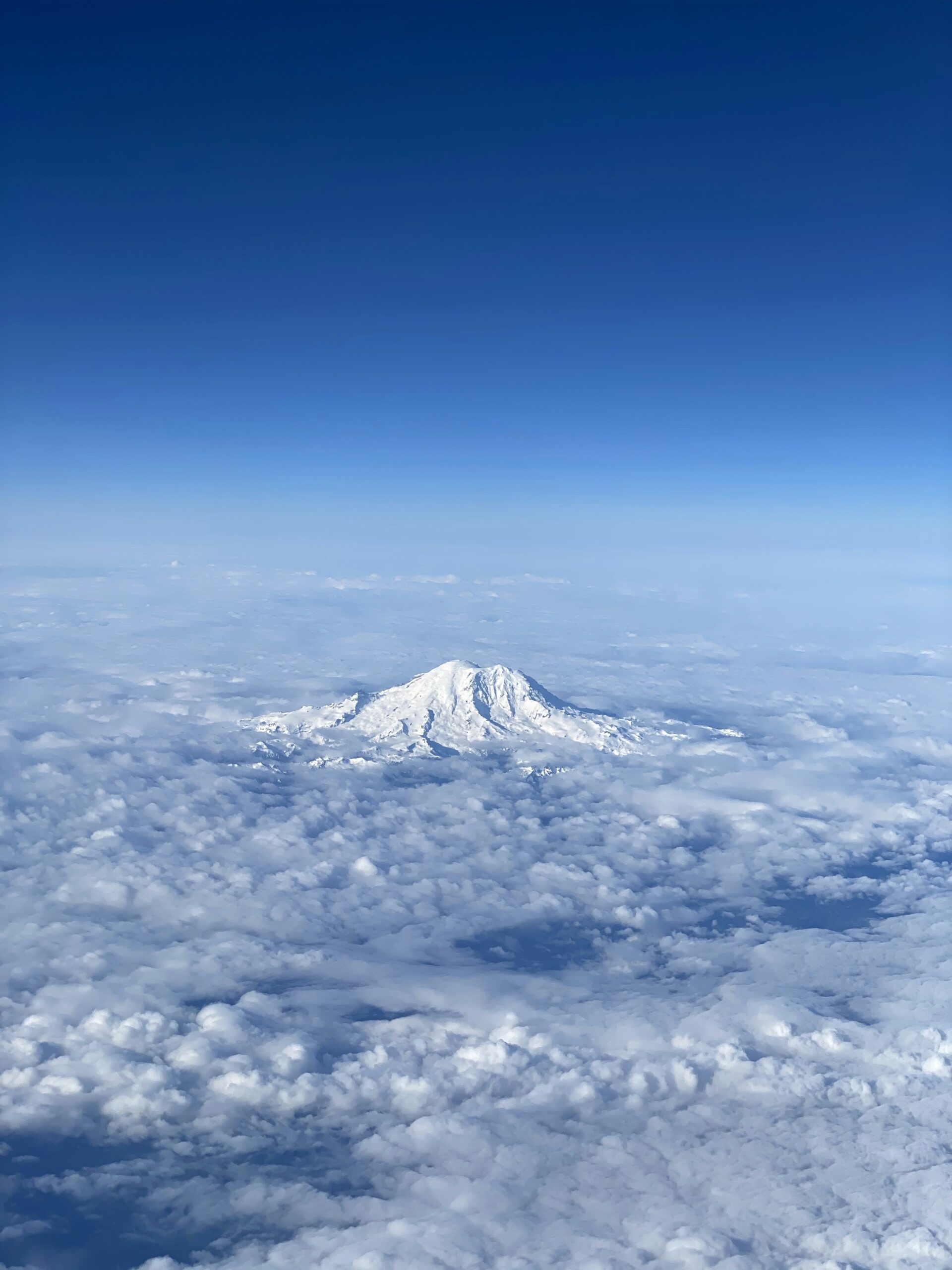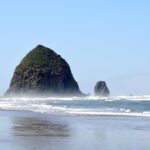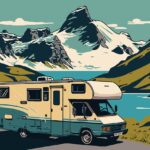Are you planning an RV trip to Washington and wondering which spots will give you the best scenery, amenities, and memories?

What Are The Popular RV Camping Spots In Washington?
Washington is a state of dramatic contrasts — rugged Pacific coastline, temperate rainforest, alpine peaks, glassy lakes, and wide semi-arid plateaus. You’ll find excellent RV camping across these landscapes, with options that range from full-hookup campgrounds and private RV resorts to remote Forest Service sites for dispersed camping. Below you’ll get a detailed guide to popular RV spots by region, practical tips for reservations and driving, boondocking guidance, ferry info for the islands, and sample itineraries you can adapt to your schedule.
Quick overview of RV camping in Washington
You can expect busy summer seasons (June–September) at the most popular sites and much quieter conditions in spring and fall. State parks and national parks host many large RV sites, while private parks fill in gaps with full services and resort-style amenities. If you want solitude, Eastern Washington and high-country Forest Service roads offer dispersed camping, but you’ll trade hookups for scenery and tranquility.
Planning essentials before you go
Before you leave, check RV clearance on routes (bridges, low trees), know your RV length for campsites, and confirm whether campgrounds accept large rigs. Reservations are essential for many state and national park campgrounds during peak season. Also prepare for variable cell coverage — mountain and rainforest areas can have limited reception.
Reservations, passes, and fees
- Washington State Parks: use the Washington State Parks reservation system (fees vary by site). Day-use at many parks may require a Discover Pass.
- National Parks: reserve through Recreation.gov; many campgrounds fill fast.
- Private parks: reserve directly; many offer monthly rates in off-season.
- Forest Service/BLM dispersed: usually free or low-cost; check local district rules.
Puget Sound & San Juan Islands
This region blends city access with island escapes. You’ll find urban campgrounds near Seattle, scenic state parks along the Sound, and ferry-accessible island campgrounds that reward you with quiet bays and mountain views.
Deception Pass State Park
Deception Pass is one of Washington’s most photographed spots. You’ll enjoy dramatic cliffs, tide pools, and a large campground with pull-through RV sites. It fills quickly in summer, so reserve early.
Fort Worden State Park
Located in Port Townsend, Fort Worden offers historic military buildings, beachfront sites, and some sewer/electric sites suitable for RVs. You can walk to museums, cafes, and a maritime atmosphere.
Moran State Park and Lakedale on Orcas Island
Moran State Park provides forested mountain camping, and Lakedale on Orcas is a well-known private resort with spacious RV sites and ferry access planning tips. You’ll need to ride the ferry to reach Orcas, so vehicle reservations are important.
Puget Sound & San Juan Islands – Popular RV Campgrounds
| Campground | Location | Hookups | Max RV Length | Reservation Tips |
|---|---|---|---|---|
| Deception Pass State Park | Whidbey/ Fidalgo border | Limited full hookup | Up to ~50′ (site dependent) | Reserve early (summer) via WA State Parks |
| Fort Worden State Park | Port Townsend | Electric/sewer at some sites | Up to ~45′ | Popular with weekenders; book ahead |
| Lakedale Resort | Orcas Island | Partial hookups | Up to ~40′ | Ferry reservations required; reserve RV spot early |
| San Juan County Park | San Juan Island | No hookups | Small-medium rigs | Ferry to Friday Harbor; high demand in summer |
Olympic Peninsula & Pacific Coast
If you love temperate rainforests, ocean bluffs, and tide pools, the Olympics offer diverse RV camping. Options range from Olympic National Park campgrounds (some with large sites) to state parks along the coast.
Kalaloch and Ruby Beach (Olympic National Park)
Kalaloch Campground has oceanfront sites with easy access to Ruby Beach and cliffs. Many sites can handle larger RVs, but popular spots disappear quickly.
Sol Duc Hot Springs and Hoh Rainforest
Sol Duc offers a campground near hot springs (some RV sites with hookups are limited). The Hoh Rainforest has a primitive campground with no hookups; you’ll camp among moss-draped trees and ancient cedars.
Cape Disappointment State Park
Located at the Columbia River mouth in Long Beach, this park combines lighthouses, beaches, and roomy RV sites (some with hookups). It’s family-friendly and great for birding and kite flying.
Olympic Peninsula & Coast – Popular RV Campgrounds
| Campground | Location | Hookups | Best for | Notes |
|---|---|---|---|---|
| Kalaloch Campground (ONP) | West coast, Olympic NP | No hookups | Oceanfront views | Reserve through Recreation.gov |
| Sol Duc (ONP) | Near hot springs | Limited hookups | Hot springs access | Rustic sites; popular in summer |
| Hoh Campground (ONP) | Hoh Rainforest | No hookups | Rainforest experience | Expect cool, wet weather |
| Cape Disappointment SP | Long Beach area | Electric/sewer at some sites | Beaches & lighthouses | Good family amenities |
Mount Rainier & Cascades
The Cascades host classic mountain campgrounds with dramatic alpine scenery. You’ll find high-country campgrounds, riverside sites, and convenient campgrounds on the mountain’s flanks.
Campgrounds in Mount Rainier National Park
Cougar Rock and Ohanapecosh campgrounds are the most RV-friendly options within Mount Rainier NP. Both provide access to trails, wildflower meadows, and iconic views of the peak. Sites do not always have hookups and fill fast.
North Cascades National Park
The North Cascades are wilder and more remote. Colonial Creek Campground on Diablo Lake (managed by the National Park Service) permits RVs at some sites and offers stunning turquoise water views. Ross Lake has a few primitive sites accessible by boat or trails.
Stevens Pass and Snoqualmie Pass Areas
You’ll find private RV parks and Forest Service campgrounds around the mountain passes, providing easy access to hiking, skiing (in season), and mountain towns like Leavenworth.
Mount Rainier & Cascades – Popular RV Campgrounds
| Campground | Location | Hookups | RV-friendly notes |
|---|---|---|---|
| Cougar Rock (Mount Rainier NP) | Near Paradise | No hookups | Large sites; close to trailheads |
| Ohanapecosh (Mount Rainier NP) | Southeast side | No hookups | Big trees, river access |
| Colonial Creek (North Cascades NP) | Diablo Lake | No hookups | Lakeside scenery; some large sites |
| Lake Wenatchee State Park | Wenatchee area | Electric available | Great family & boating access |
Central Washington & Lake Chelan
Central Washington brings sunny summers, orchards, deserts, and mountain lakes. If you want warm weather, clear skies, and boating, this region is ideal.
Lake Chelan State Park
Lake Chelan has several campgrounds and private RV parks with full hookups. You’ll appreciate water access, wineries nearby, and long summer days.
Lake Wenatchee State Park
At the eastern foot of the Cascades, Lake Wenatchee is perfect for watersports and hiking. The park offers electric sites and a relaxed mountain setting.
Leavenworth & Methow Valley
Leavenworth has nearby private RV parks and municipal campgrounds, offering proximity to Bavarian-style town dining and events. The Methow Valley has dispersed camping and smaller state parks.
Central Washington – Popular RV Campgrounds
| Campground | Location | Hookups | Best for |
|---|---|---|---|
| Lake Chelan State Park | Lake Chelan | Electric/sewer at some sites | Boating, wineries |
| Lake Wenatchee State Park | Near Leavenworth | Electric available | Fishing, hiking |
| Dry Falls / Sun Lakes SP | Near Coulee City | Some sites with hookups | Natural history & stargazing |
Eastern Washington & The Palouse
You’ll find wide open spaces, rolling wheat fields, basalt coulees, and dramatic formations like Palouse Falls. Eastern Washington is excellent for dispersed camping, stargazing, and quieter RV stays.
Sun Lakes-Dry Falls State Park
This unique geologic area offers large campgrounds with paved sites and hookups. The Visitor Center and dramatic cliffs make this a great stop for families and photographers.
Palouse Falls State Park
Palouse Falls is an iconic waterfall. The state park is relatively small and lacks extensive RV hookups, but nearby county campgrounds and private parks accept larger rigs.
Spokane Area
Riverside State Park near Spokane offers RV sites near river canyons, and there are multiple private parks near the city for full services.
Eastern Washington – Popular RV Campgrounds
| Campground | Location | Hookups | Notes |
|---|---|---|---|
| Sun Lakes-Dry Falls SP | Coulee City | Electric & sewer at some sites | Great geology & clean night skies |
| Palouse Falls SP | Near LaCrosse | Limited/no hookups | Best for day visits; use nearby RV parks |
| Riverside State Park | Spokane | Selected RV sites | Access to river activities |
Southwest Washington & Volcano Areas
Southwest Washington offers coastal parks, river recreation, and volcano viewing. It’s a convenient region if you’re coming from Portland or the Columbia River corridor.
Mount St. Helens Area
Seaquest State Park and other nearby campgrounds provide access to the Johnston Ridge Observatory and trailheads. Some sites accommodate larger rigs, but peak season sees high use from day-trippers.
Cape Horn & Columbia River Gorge (WA side)
While much of the Columbia River Gorge camping infrastructure is on the Oregon side, Washington offers scenic viewpoints and smaller campgrounds that are great as staging areas for boating and windsurfing.
Southwest Washington – Popular RV Campgrounds
| Campground | Location | Hookups | Best for |
|---|---|---|---|
| Seaquest State Park | Near Mount St. Helens | Electric available | Volcano views & trails |
| Cape Disappointment SP | Long Beach/Ilwaco | Electric/sewer at some sites | Beaches & lighthouses |

State Parks vs National Parks vs Private RV Parks — Quick comparison
You’ll want to balance natural settings, amenities, and cost when choosing campgrounds.
| Type | Pros | Cons |
|---|---|---|
| State Parks | Scenic, affordable, many with primitive to electric sites | Popular sites fill quickly; some require Discover Pass for day use |
| National Parks | Incredible landscapes, park-managed services | Many sites lack hookups; highly competitive reservations |
| Private RV Parks/Resorts | Full hookups, laundry, Wi‑Fi, off-season deals | Higher nightly rates; less “wild” feeling |
Boondocking and Forest Service Camping
If you want off-grid camping, Washington’s National Forests and BLM lands offer dispersed sites. You’ll trade hookups for solitude and scenery.
- Where: Okanogan-Wenatchee, Gifford Pinchot, Colville National Forests, and parts of Eastern Washington.
- Rules: No facilities, pack out trash, respect seasonal closures and fire restrictions. Some forests limit length of stay (often 14 days).
- Resources: Check local National Forest ranger district offices, the Washington Department of Natural Resources (DNR), and use apps or maps that show designated dispersed camping spots.
Cell coverage and connectivity
In major towns and along interstate corridors you’ll usually get 4G LTE coverage. In the heart of the Olympics, the North Cascades, and some Eastern backcountry roads, coverage can be intermittent or absent. If you need reliable internet, plan camp stays near towns or private parks that advertise Wi‑Fi.
Safety, wildlife, and fire rules
You’ll likely encounter wildlife such as deer, elk, black bears, and cougars. Secure food, use bear-resistant storage where available, and follow park rules for campfires (which may be restricted during dry months). Know local regulations on bringing firewood; many parks prohibit moving firewood to prevent invasive pests.
Ferry travel to islands — what you need to know
If you plan to visit the San Juan Islands or other islands, ferries are a big part of the trip. Here are essentials to know:
- Reservations: Washington State Ferries does not accept vehicle reservations for the San Juan ferry system operated by the Washington State Ferries to the San Juans? Correction: The San Juan Islands are served by Washington State Ferries (vehicle reservations launched for some routes) and the San Juan County has its own ferry/san juan ferry? More precise guidance: The Washington State Ferries (WSF) serves some islands (San Juan route is via Anacortes to Friday Harbor, Lopez, Orcas). Vehicle reservations are available for select routes and times — check WSF. In summer, arrive early or reserve if possible.
- Fees: Expect vehicle fares and passenger fares; RV fees depend on vehicle length.
- Size limits: Some ferries can handle large rigs, but space is limited. Check route-specific vehicle length limits.
- Logistics: Bring chains of supplies if you plan to island-hop, as grocery options may be limited on smaller islands.

Practical RV tips for Washington weather and roads
- Drive carefully through mountain passes: watch for snow and ice in shoulder seasons and required chains. Check WSDOT for current conditions.
- Prepare for microclimates: it can be sun-drenched in Eastern WA and misty in the western rainforests. Pack layers and rain gear.
- Dump stations: Many state parks have dump stations, but not all. Plan your waste management accordingly.
- Water and power: Many state park sites offer electric only or no hookups. If you need full service, confirm hookups when reserving or pick a private park.
What to pack for Washington RV camping
- Layered clothing and waterproof outerwear
- Sturdy hiking shoes and a daypack
- Chains or traction devices for winter mountain travel
- Bear spray if you’ll hike in bear country and know how to use it
- Campfire permits/fire safety info (check local rules)
- Ferry reservation info and payment methods
- Paper maps for areas with limited cell reception
How to choose campsites for your RV size
Many campgrounds list RV length limits. When reserving, consider:
- Your overall rig length including tow vehicle
- Whether sites are pull-through or back-in (pull-through makes parking simpler)
- Trees and overhead branches that may be low
- Driveway angles and levelness — some camps have very tight turns
If you have an oversized RV, look for “full-hookup RV parks” or specific large-site designations in state or private park descriptions.
Suggested 7–14 day RV itineraries
Here are three sample itineraries you can adapt based on your interests and timeframe.
Itinerary A — Olympic Peninsula and Coast (7–10 days)
- Day 1–2: Arrive in Port Angeles, camp at a nearby state park.
- Day 3–4: Move to Kalaloch Campground for oceanfront camping and beach walks.
- Day 5: Visit the Hoh Rainforest; stay at Hoh Campground or nearby private RV park.
- Day 6–7: Cape Disappointment or Long Beach area for beaches and lighthouses.
- Optional: Add a day on a ferry to the San Juan Islands if time allows.
Itinerary B — Cascades & Mount Rainier Loop (7–10 days)
- Day 1–2: Stay at a campground near Leavenworth or Lake Wenatchee.
- Day 3–4: Head to North Cascades (Colonial Creek or nearby sites).
- Day 5–6: Drive to Mount Rainier (Cougar Rock/Ohanapecosh) and hike the trails.
- Day 7: Return through Yakima or stop at wineries around Chelan.
Itinerary C — San Juan Islands + Puget Sound (5–7 days)
- Day 1: Camp near Anacortes or Whidbey Island.
- Day 2–4: Ferry to Orcas or San Juan Island; camp at Lakedale or private parks.
- Day 5–6: Return to the mainland and stay near Deception Pass or Fort Worden for beaches and historic sites.
Tips for booking and timing
- Book early for summer — many popular campgrounds open reservations months in advance.
- Consider weekday stays to avoid weekend crowds.
- Shoulder seasons (late spring or early fall) can give you cooler weather, fewer crowds, and lower rates, but be aware of variable weather and limited services.
- Use cancellation policies wisely; many sites have flexible cancellation up to a date before arrival.
Pet and family considerations
Most Washington campgrounds welcome pets but require leashes and control. Check specific park rules for off-leash areas. National parks often have stricter rules about where pets are allowed on trails.
For family trips, look for campgrounds with playgrounds, beaches, ranger programs, and access to short family-friendly hikes.
Accessibility and RV-friendly facilities
If you need accessible sites, many state parks and national park campgrounds offer ADA-accessible campsites and restrooms. Confirm accessibility features when you reserve and call the park if you have specific requirements.
Seasonal and weather cautions
- Fire season: In late summer, expect campfire bans in many areas. Always carry a camp stove as backup.
- Snow season: High-elevation campgrounds close seasonally. Check opening dates for mountain campgrounds.
- Tides and ocean safety: On coastal beaches, be mindful of tides and avoid dangerous shoreline cliffs.
Common mistakes to avoid
- Not checking RV length restrictions before booking.
- Assuming hookups are available at every campsite.
- Underestimating travel times in mountain terrain.
- Forgetting ferry vehicle reservation requirements for island trips.
Useful resources and booking sites
You’ll want to consult official sources when planning:
- Washington State Parks reservation system (book campsites and check park details)
- Recreation.gov (national park campground bookings)
- Washington State Ferries and county ferry services
- U.S. Forest Service and BLM ranger district pages for dispersed camping guidelines
- WSDOT for road and mountain pass conditions
Final thoughts
You’ll find Washington to be a rewarding state for RV camping, with options that fit every camping style — from full-service RV resorts to remote forested pullouts. Take time to pick a region that matches your interests, reserve early for popular sites, and prepare for varied weather and wildlife. With thoughtful planning, you’ll enjoy coastlines, towering peaks, quiet islands, and expansive plains — all from the convenience of your RV.
If you want, I can create a customized 7–14 day route for your specific travel dates, RV length, and interests (hiking, boating, birding, wineries, or quiet backcountry). Which region are you most interested in visiting first?







